HVAC Companies Eston
Find top HVAC Contractor in Eston
Receive up to 3 HVAC Contractor quotes for your project today! Compare profiles, reviews, accreditations, portfolio, etc... and choose the best deal.
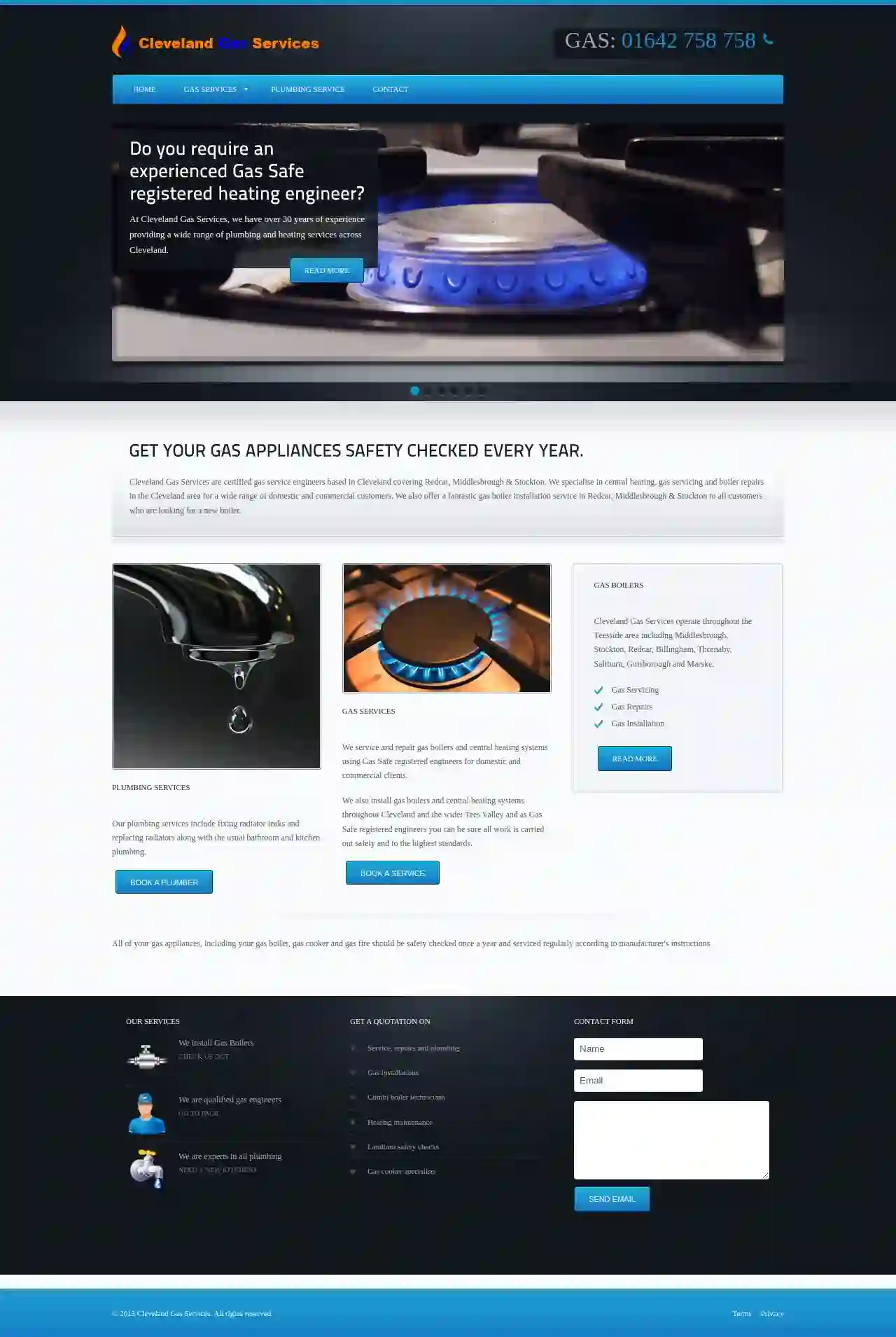
Cleveland Gas Services - Plumbers Redcar
4.921 reviewsRedcar, GBAt Cleveland Gas Services, we have over 30 years of experience providing a wide range of plumbing and heating services across Cleveland. Our dedicated team can work efficiently to get your plumbing and heating system back to working how it should. We are Gas Safe registered engineers, so you can be sure all work is carried out safely and to the highest standards. We install all forms of central heating and are ideally situated to give you the best advice possible on which form of central heating is most suitable for your house. We also offer a fantastic gas boiler installation service in Redcar, Middlesbrough & Stockton to all customers who are looking for a new boiler.
- Services
- Why Us?
- Gallery
Get Quote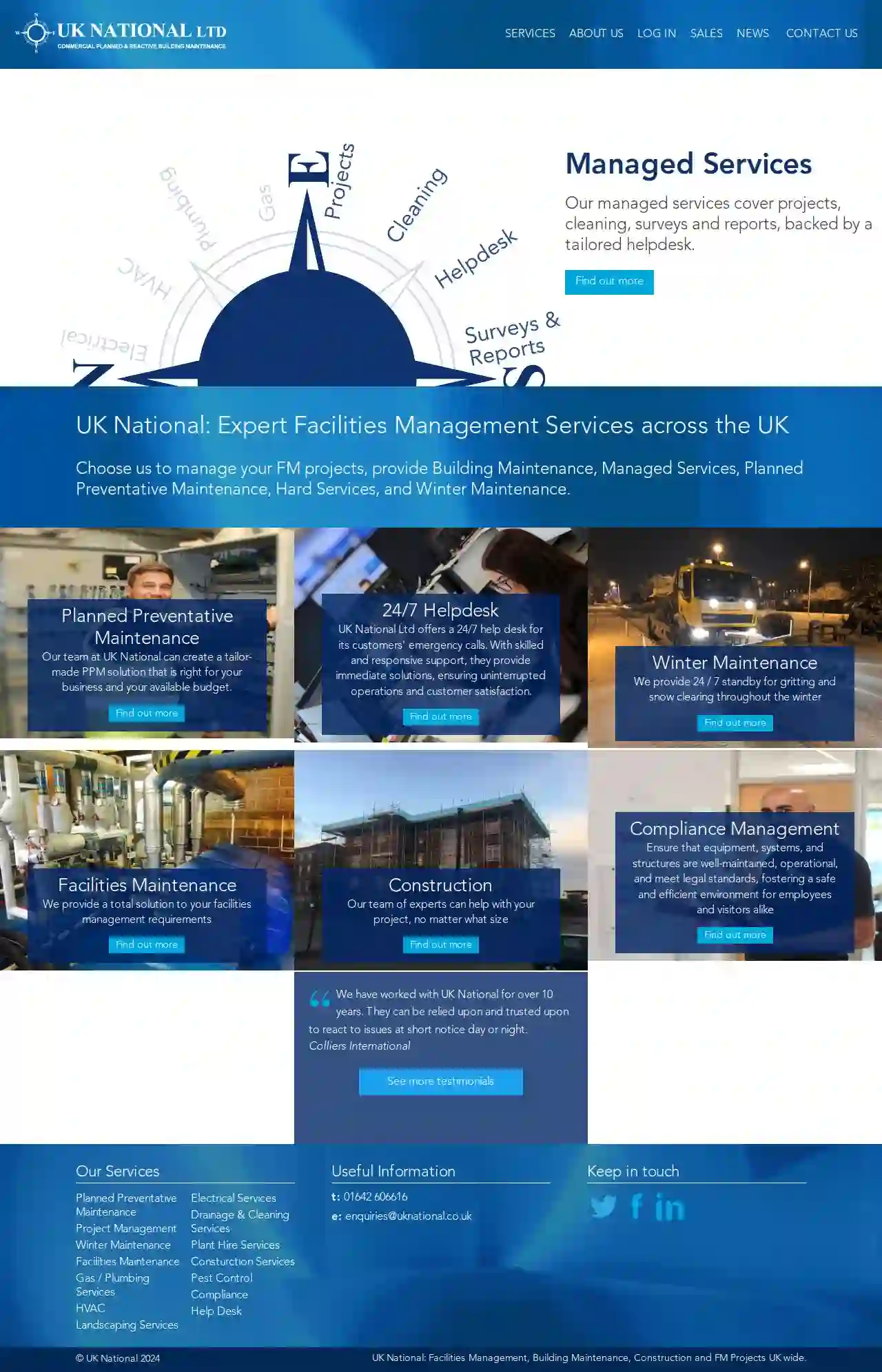
UK National Ltd
4.516 reviewsDurham Lane Industrial Estate, 4 Wass Way, Eaglescliffe, TS16 0RG, GBEstablished in 1994, UK National Ltd provide a high quality property maintenance and facilities management service. With over 20 years experience of undertaking maintenance of commercial properties throughout the UK for major clients and managing agents. References are available on request. Our well trained professional staff are fully uniformed and carry identification cards at all times. Your satisfaction is our primary objective!
- Services
- Why Us?
- Testimonials
- Gallery
Get Quote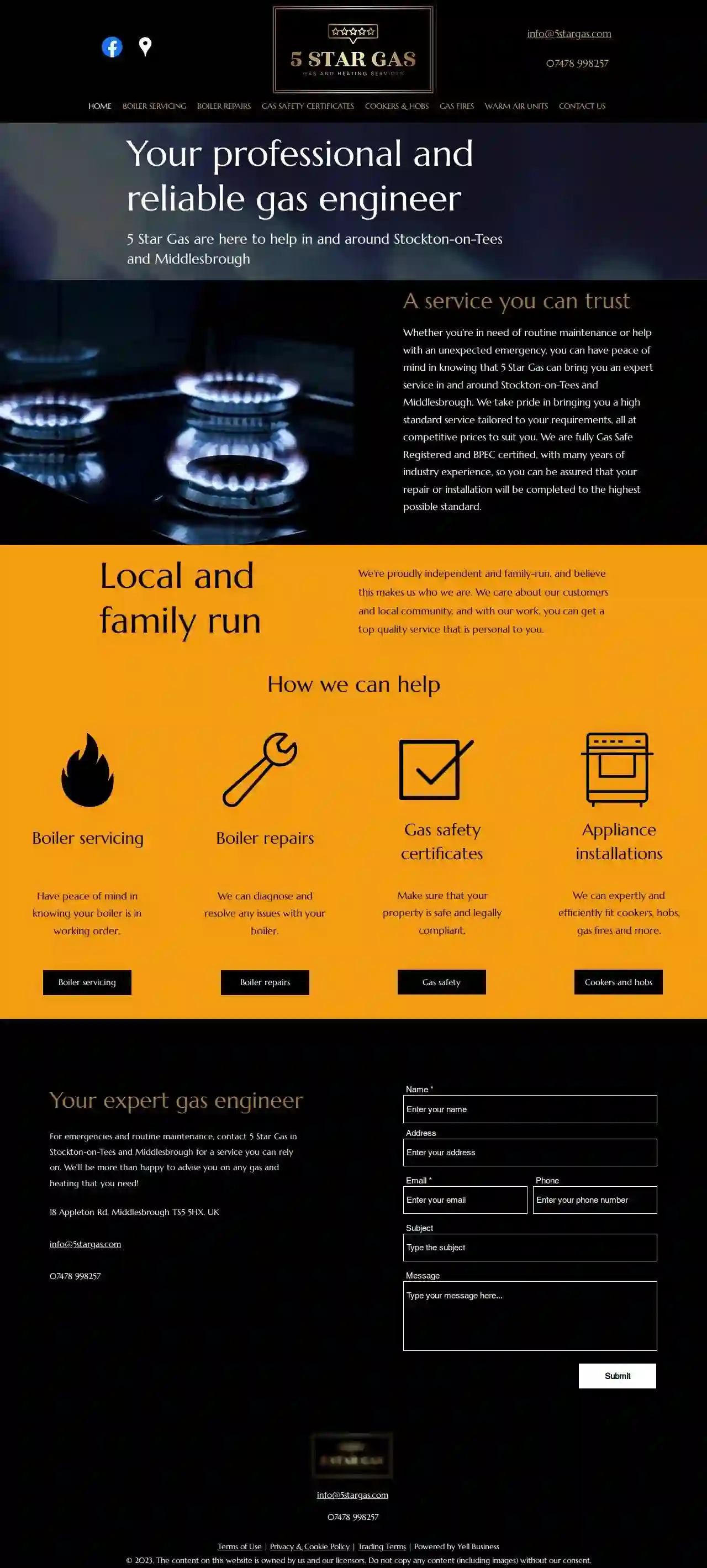
5 Star Gas
516 reviews18 Appleton Rd, Middlesbrough, TS5 5HX, GB5 Star Gas are a professional and reliable gas engineer serving Stockton-on-Tees and Middlesbrough. We pride ourselves on providing a high standard service tailored to your requirements, all at competitive prices. Whether you need routine maintenance or help with an unexpected emergency, you can trust 5 Star Gas to deliver expert service. We are fully Gas Safe Registered and BPEC certified, with many years of industry experience, ensuring your repair or installation is completed to the highest possible standard. As a proudly independent and family-run business, we care about our customers and local community. We believe this personal touch makes all the difference, providing you with a top quality service that is personal to you.
- Services
- Why Us?
- Gallery
Get Quote
Technicold
4.210 reviewsCowpen Ind Est, 10 Lagonda Court, Billingham, TS23 4JF, GBTechnicold is an established air conditioning and refrigeration company based in the North East of England. We do air conditioning installs & air conditioning repairs work in Middlesbrough, Stockton-on-Tees, Redcar, Billingham, Hartlepool, and across the North East. We install and repair domestic and commercial air conditioning systems. Here at Technicold we have an exceptional team of air conditioning engineers who can undertake all types of domestic and commercial work. Air conditioning is fantastic as it both keeps commercial premises and homes cool, but also acts as a source of heating as well - in fact using air conditioning to heat your home is much cheaper than using a boiler.From our base in Billingham we cover all the North East, as well as the wider areas of the UK for major commercial projects. Why not get in touch to arrange a quotation?
- Services
- Why Us?
- Gallery
Get Quote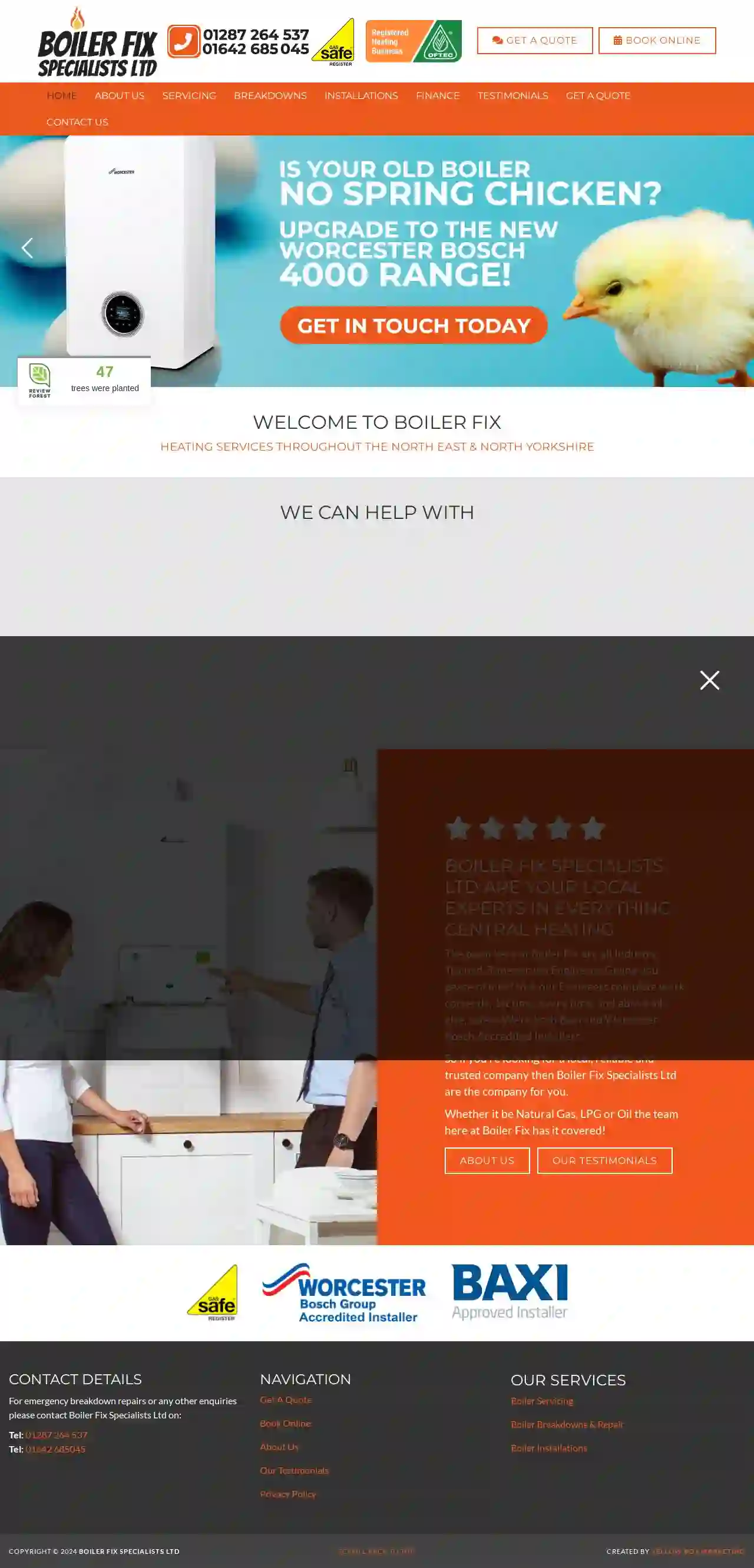
Boiler Fix Specialists Ltd
4.849 reviewsAllum Way, Skelton Industrial Estate, Skelton, Unit 2, The B Hive Business Centre, TS12 2LQ, GBWelcome to Boiler Fix Specialists Ltd, your local experts in everything Central Heating. Our team of Industry Trained, Time served Engineers are dedicated to providing you with peace of mind that our work is completed correctly, 1st time, every time, and above all else, safely. We're both Baxi and Worcester Bosch Accredited Installers. Whether it be Natural Gas, LPG or Oil, we have it covered! We provide all aspects of boiler services, including boiler installation, servicing, and repairs. Contact us today to arrange your service or book online for a free no-obligation instant boiler quotation.
- Services
- Why Us?
- Gallery
Get Quote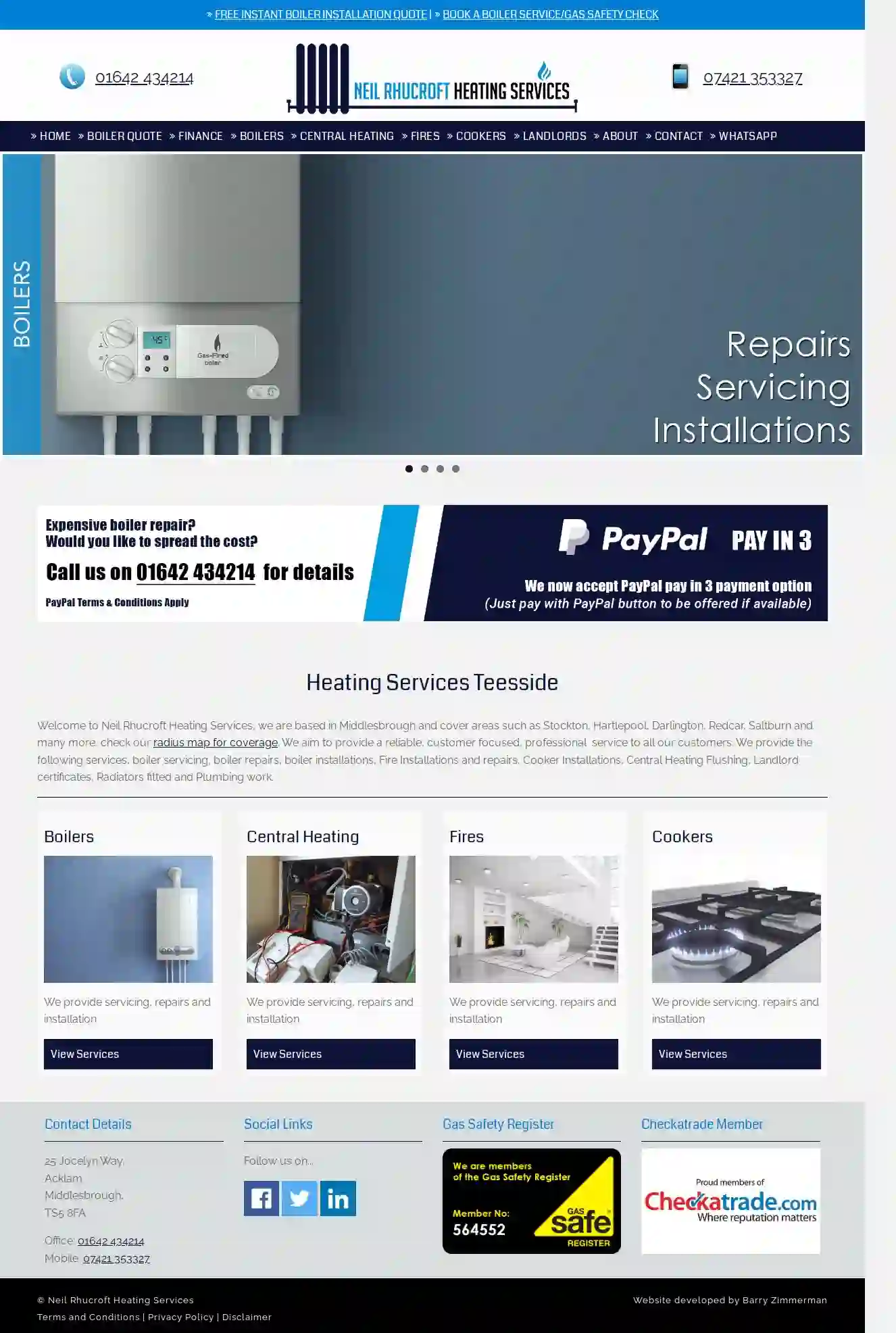
Neil Rhucroft Heating Services Ltd
543 reviewsAcklam, Middlesbrough, 25 Jocelyn Way, TS5 8FA, GBNeil Rhucroft Heating Services is a customer-focused heating company based in Middlesbrough, Teesside. We cover a wide area including Stockton, Hartlepool, Darlington, Redcar, Saltburn and more. Our team of professionals provides a reliable service for all your heating needs, including boiler servicing, repairs, installations, fire installations and repairs, cooker installations, central heating flushing, landlord certificates, radiator fitting, and plumbing work. We aim to provide a high-quality service to all our customers, ensuring their satisfaction.
- Services
- Why Us?
- Accreditations
- Gallery
Get Quote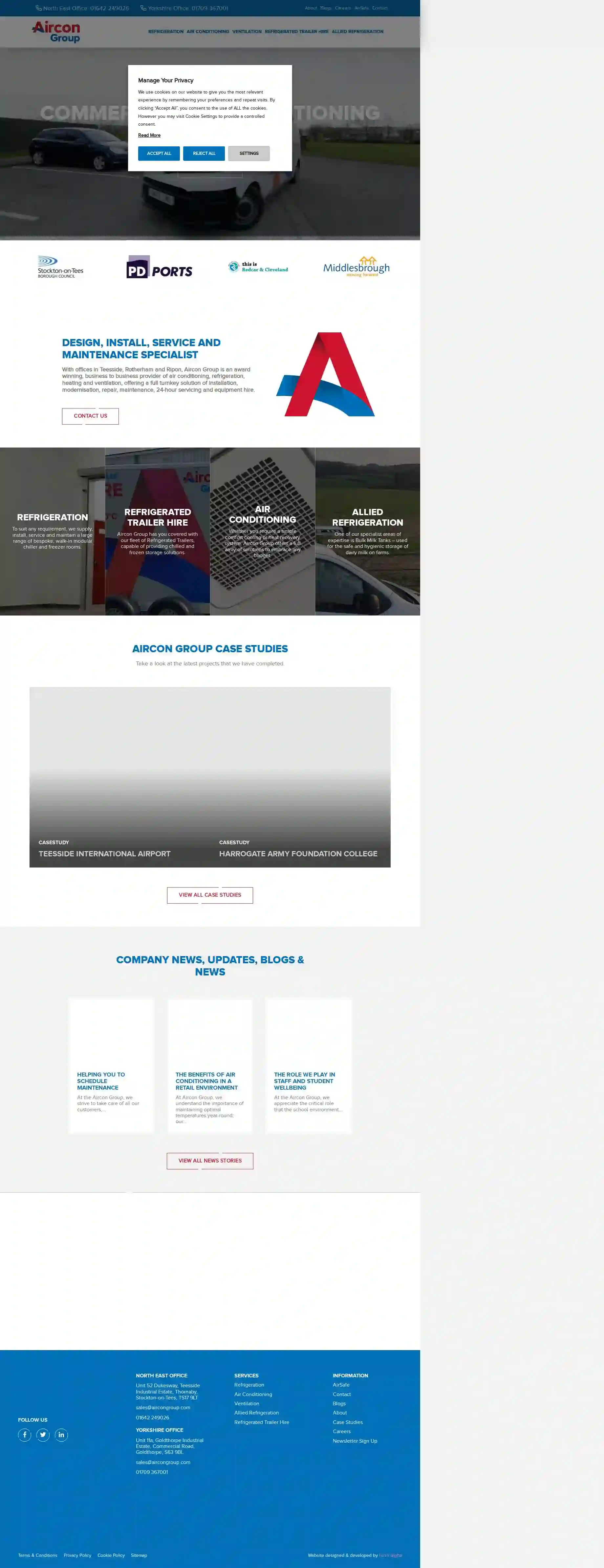
Aircon Group
4.73 reviewsTeesside Industrial Estate, Thornaby, Unit 52 Dukesway, Stockton-on-Tees, TS17 9LT, GBAircon Group is a leading provider of refrigeration, air conditioning, and ventilation solutions. With a strong presence in the North East and Yorkshire, we offer a range of services including refrigerated trailer hire and allied refrigeration. Our team of experts is dedicated to providing high-quality solutions that meet the unique needs of our clients. With a commitment to excellence and a passion for innovation, we strive to be the go-to partner for all your refrigeration and air conditioning needs.
- Services
- Why Us?
- Accreditations
- Gallery
Get Quote
Coldtech Refrigeration & Air Conditioning Ltd
4.526 reviewsLawson Ind Estate, Middlesbrough, TS4 3BN, GBColdtech Refrigeration & Air Conditioning specialises in refrigeration and air conditioning repair, maintenance, installation, design and sales. We are located in Middlesbrough, UK and offer services all around the North East of England. Our Key Services Installation of high quality and efficient air conditioning and refrigeration systems. We understand that every contract is different so all of our maintenance packages are expertly tailored to suit the individual need of each client. Scheduled and emergency service and repair packages to suit our clients needs. We install, maintain and service air conditioning for all industrial, commercial & office environments. All Coldtech equipment is high quality, environmentally friendly, reliable and fit for purpose. We also provide a host of domestic services so please feel free to call for further info on this. why choose coldtech With over 38 years of experience we have grown to become the leading name within refrigeration & Air Conditioning throughout the North East & Yorkshire. Reputation A long track record of delivering a high quality service to our wide customer base. experience & expertise A trusted team of experienced and skilled engineers ScheduledMaintenance Comprehensive maintenance plans tailored to clients individual needs. Emergency repair services 24 / 7
- Services
- Why Us?
- Gallery
Get Quote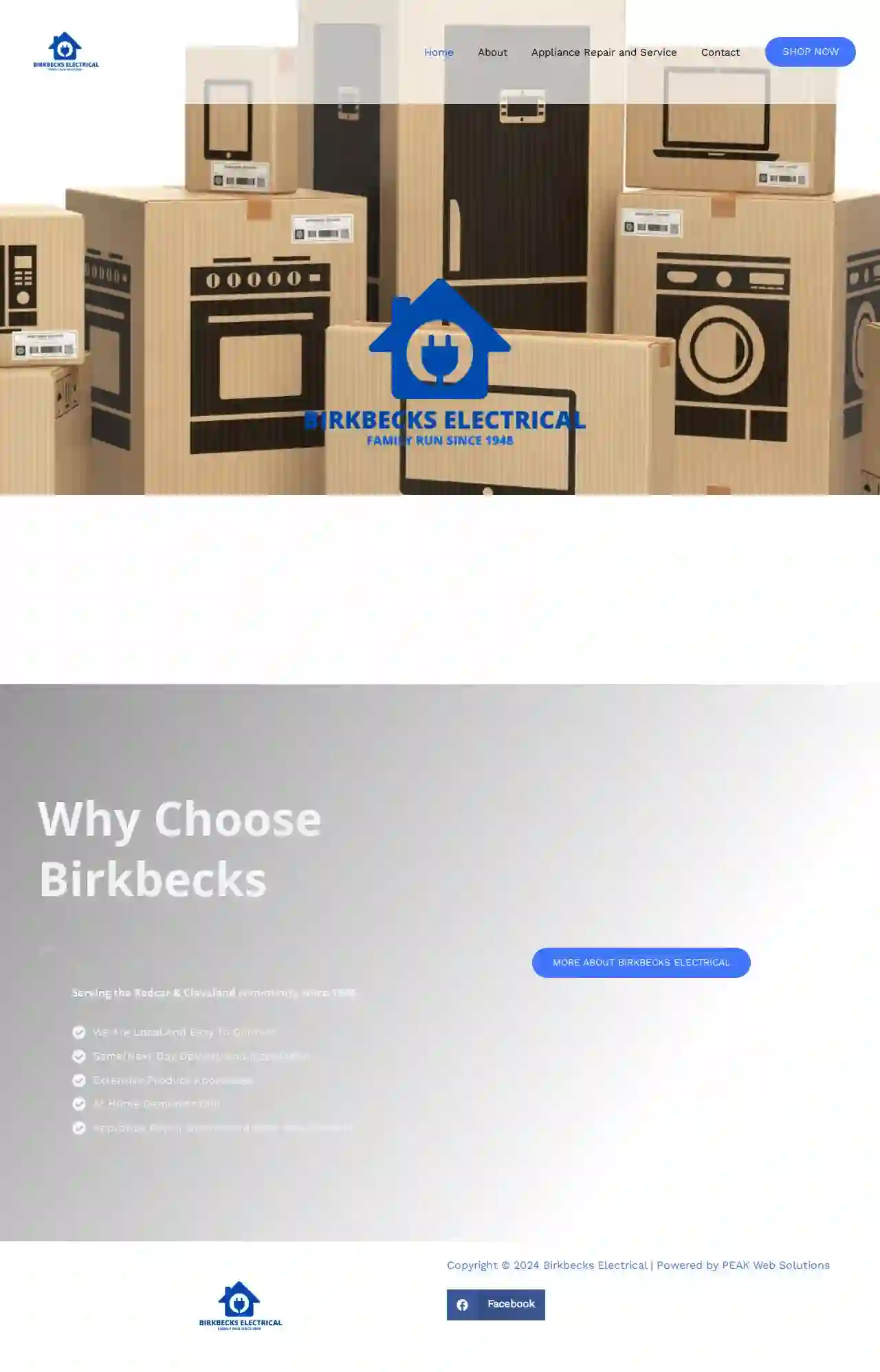
Birkbecks Electrical
4.8138 reviews100-102 High Street, Redcar, TS10 1PX, GBServing the Redcar & Cleveland community since 1948, Birkbecks Electrical is your local expert for all your appliance needs. We pride ourselves on our extensive product knowledge, commitment to customer service, and ability to provide same/next day delivery and installation. Whether you're looking for a new appliance or need repairs for your existing one, our team is here to help. We offer a wide range of appliances, from refrigerators and washing machines to ovens and cooktops. We also provide expert repair services for all major brands. Contact us today to learn more about our products and services.
- Services
- Why Us?
- Gallery
Get Quote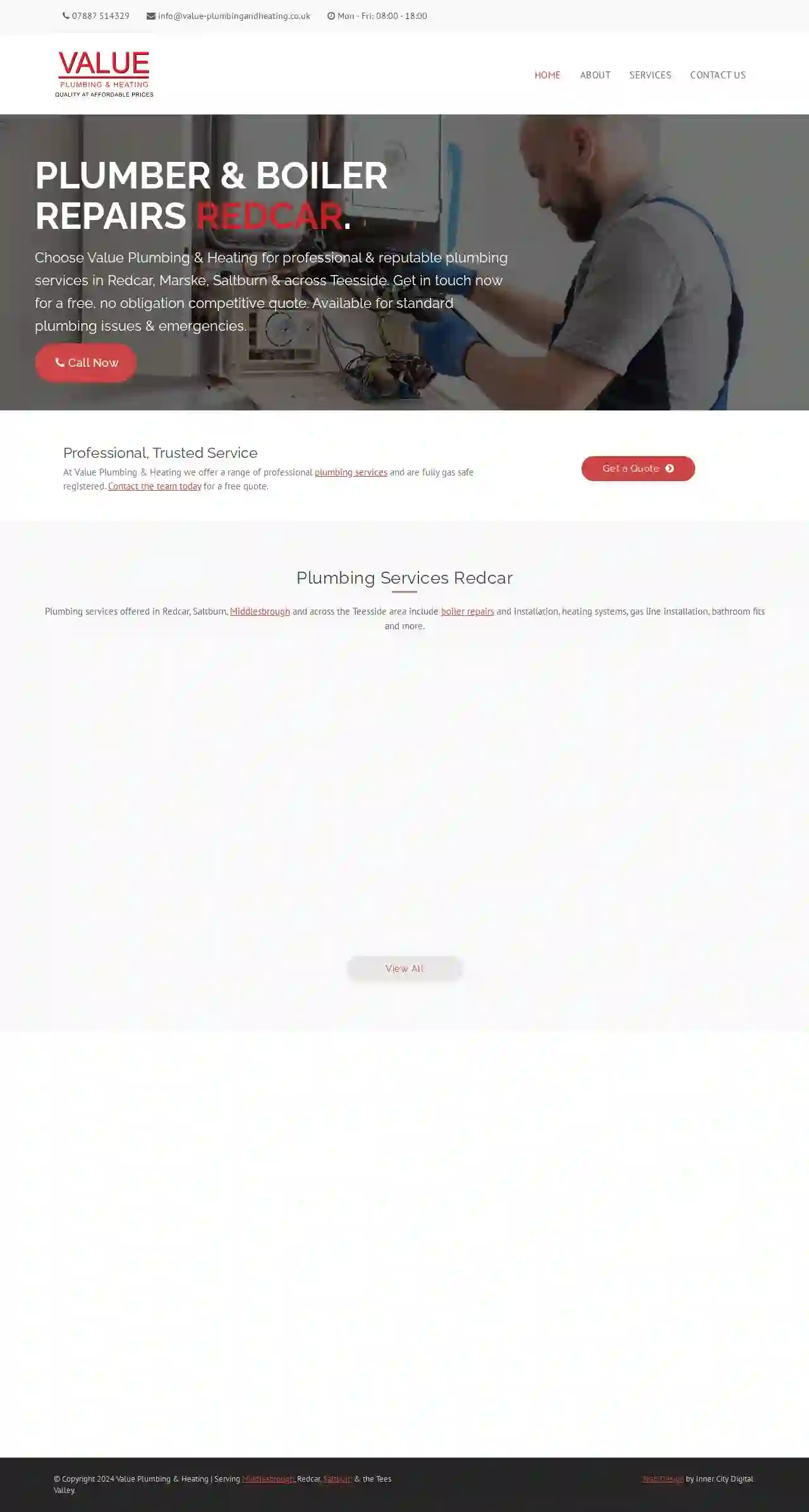
Value Plumbing & Heating - Plumber Redcar
530 reviewsRedcar, GBValue Plumbing & Heating is a family run business based in the heart of Redcar. Working across the local area you’ll find our plumbing services reputable, professional and cost effective. As a company we pride ourselves on high levels of customer service and our ability to maintain cost effective solutions in a timely manner. Established 2009, Over the last 14 years, Value Plumbing and Heating has evolved dramatically, building a steadfast reputation in Redcar and on Teesside. The team works successfully with both residential and commercial customers. Fully Qualified and Certified, Our team of experts are all gas safe registered meaning they are fully qualified and competent in carrying out relevant plumbing work. Equipped with certification, please feel free to ask us about these. Competitively Priced, At Value Heating and Plumbing we offer a first class service at extremely competitive prices. Customers tend to refer us to others due to not only cost but the level of customer service offered.
- Services
- Why Us?
- Gallery
Get Quote
Over 12,692+ HVAC Contractors on our platform
Our HVAC pros operate in Eston and beyond!
HVACCompaniesHub has curated and vetted the Best HVAC Contractors in Eston. Find a trustworthy contractor today.
Frequently Asked Questions About HVAC Companies
- Change Air Filters: Change or clean your air filters every 1-3 months. Dirty air filters restrict airflow and decrease system efficiency.
- Clear Debris: Keep the area around your outdoor unit clear of debris, leaves, and snow.
- Check Thermostat Settings: Make sure your thermostat is set to the desired temperature and is functioning correctly.
- Regular Maintenance: Schedule annual HVAC maintenance to ensure your system is running at peak efficiency.
- Programmable Thermostat: Use a programmable or smart thermostat to optimize temperature settings based on your schedule.
- Seal Air Leaks: Caulk and weatherstrip windows and doors to prevent drafts.
- Proper Insulation: Ensure adequate insulation in your attic, walls, and floors to prevent heat loss in winter and heat gain in summer.
- Ventilation: Use fans strategically to circulate air and reduce reliance on AC.
- Energy-Efficient Appliances: Choose energy-efficient appliances to reduce your overall energy load.
- HVAC Zoning: Consider zoning your HVAC system to condition different areas of your home separately.
- AC not cooling: Refrigerant leaks, compressor issues, or thermostat problems.
- Furnace not heating: Pilot light or ignition control issues, blower motor problems, or clogged filters.
- Uneven temperatures: Ductwork leaks, inadequate insulation, or faulty thermostats.
- Poor air quality: Dirty air filters, mold growth in ductwork, or inadequate ventilation.
- Strange noises: Unusual sounds from the system can indicate a variety of problems with different components.
- High energy bills: Inefficient systems, ductwork leaks, or improper thermostat settings.
What regular maintenance should I do on my HVAC system?
How often should I have my HVAC system serviced?
How can I reduce my HVAC energy consumption?
What are the most common HVAC problems?
Common HVAC problems include:
What regular maintenance should I do on my HVAC system?
- Change Air Filters: Change or clean your air filters every 1-3 months. Dirty air filters restrict airflow and decrease system efficiency.
- Clear Debris: Ensure there are no obstructions near the vents inside your home.
- Check Thermostat Settings: Make sure your thermostat is set to the desired temperature and is functioning correctly.
How often should I have my HVAC system serviced?
How can I reduce my HVAC energy consumption?
- Regular Maintenance: Schedule annual HVAC maintenance to ensure your system is running at peak efficiency.
- Programmable Thermostat: Use a programmable or smart thermostat to optimize temperature settings based on your schedule.
- Seal Air Leaks: Caulk and weatherstrip windows and doors to prevent drafts.
- Proper Insulation: Ensure adequate insulation in your attic, walls, and floors to prevent heat loss in winter and heat gain in summer.
- Ventilation: Use fans strategically to circulate air and reduce reliance on AC.
- Energy-Efficient Appliances: Choose energy-efficient appliances to reduce your overall energy load.
- HVAC Zoning: Consider zoning your HVAC system to condition different areas of your home separately.
What are the most common HVAC problems?
Common HVAC problems include:
- AC not cooling: Refrigerant leaks, compressor issues, or thermostat problems.
- Furnace not heating: Pilot light or ignition control issues, blower motor problems, or clogged filters.
- Uneven temperatures: Ductwork leaks, inadequate insulation, or faulty thermostats.
- Poor air quality: Dirty air filters, mold growth in ductwork, or inadequate ventilation.
- Strange noises: Unusual sounds from the system can indicate a variety of problems with different components.
- High energy bills: Inefficient systems, ductwork leaks, or improper thermostat settings.